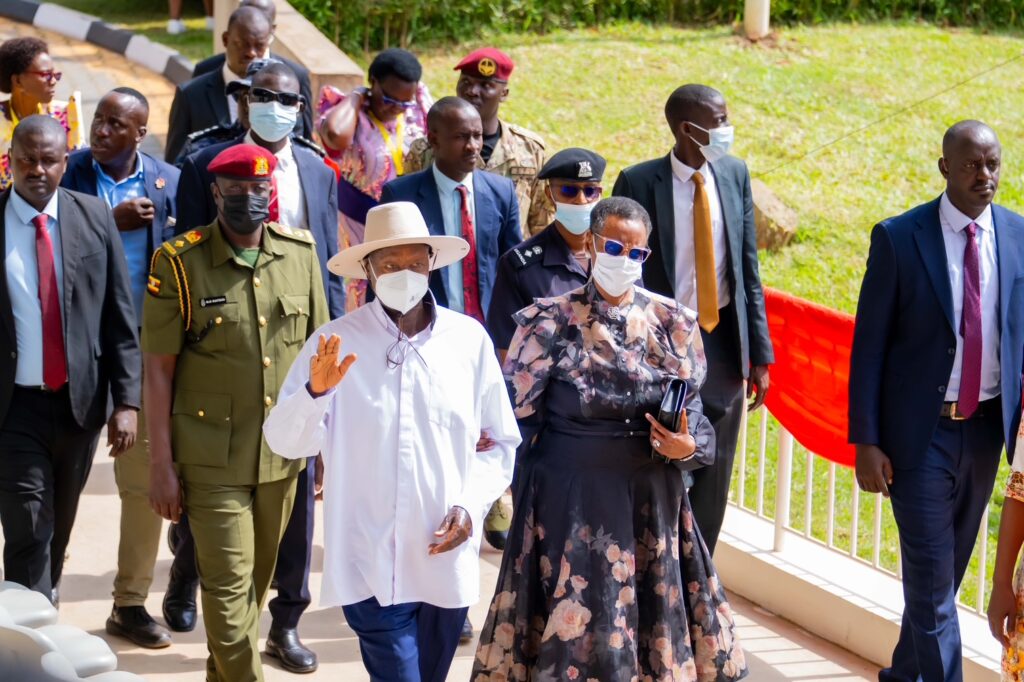
NAMUGONGO.
President Museveni has today directed that government funding for Martyrs Day celebrations be included in the national budget annually, acknowledging the spiritual significance and massive participation of Ugandans across all religious denominations.
“This year, the government gave the Catholics Shs 2 billion, the Protestants Shs 2 billion and the Muslims Shs 200 million for this occasion,” he said.
“I have directed the government to make this contribution part of the government budget annually, since many Ugandans participate.”
President Museveni, who was accompanied by the First Lady and Minister for Education, Janet Museveni, made the remarks while addressing thousands of Christians at the Namugongo Anglican site during Uganda Martyrs Day celebrations.
The celebrations were led by the Northern Uganda Cluster, under the theme: “Imitating God’s Goodness by Doing Good (Galatians 6:9–10)”.
The President emphasized the government’s continued investment in religious infrastructure.
“As you all know, the government spent billions modernizing this infrastructure you see today at both the Catholic and Protestant sites. When the Muslims are ready, we shall also support them because I am told some Muslim followers were also killed by Mwanga. May God bless all of you,” he said.
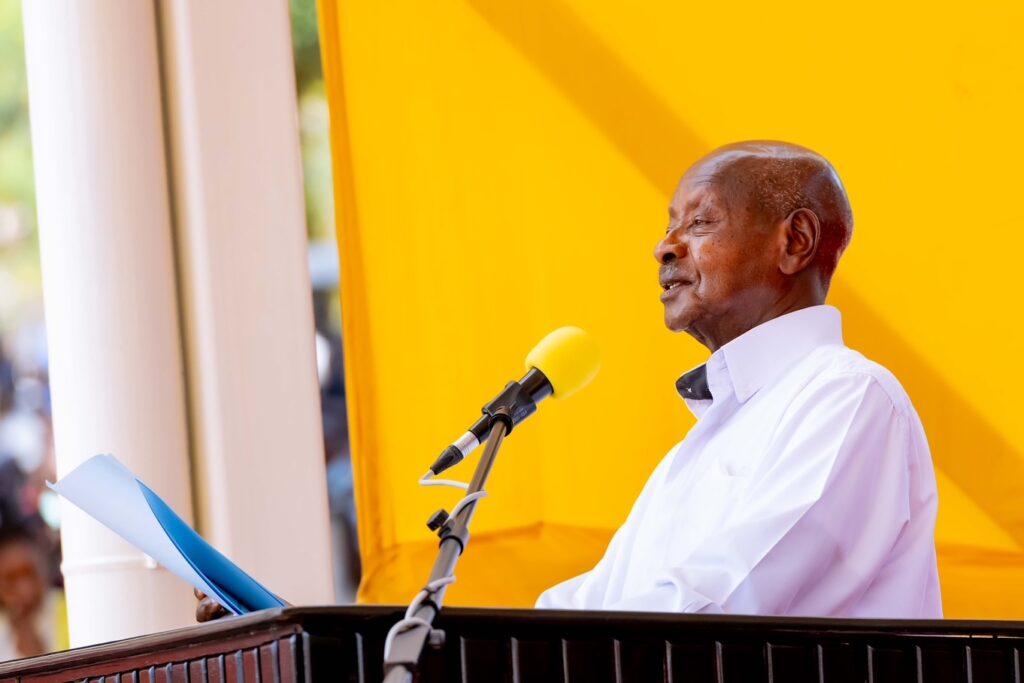
Historical reflection:
President Museveni gave a historical reflection on the arrival of new religions in Uganda, tracing Islam’s introduction in 1841 by Ahmad bin Ibrahim, Anglicanism in 1877, and Catholicism in 1879.
These religions, he noted, offered new understandings of the divine, complementing Uganda’s indigenous faith traditions.
“It was wrong for Mwanga to try and kill this new perspective about the supernatural realm,” said the President.
“It is good that young boys and some girls, I am told, were ready to give up their lives for freedom of worship,” he said.
The President also saluted this spirit of sacrifice.
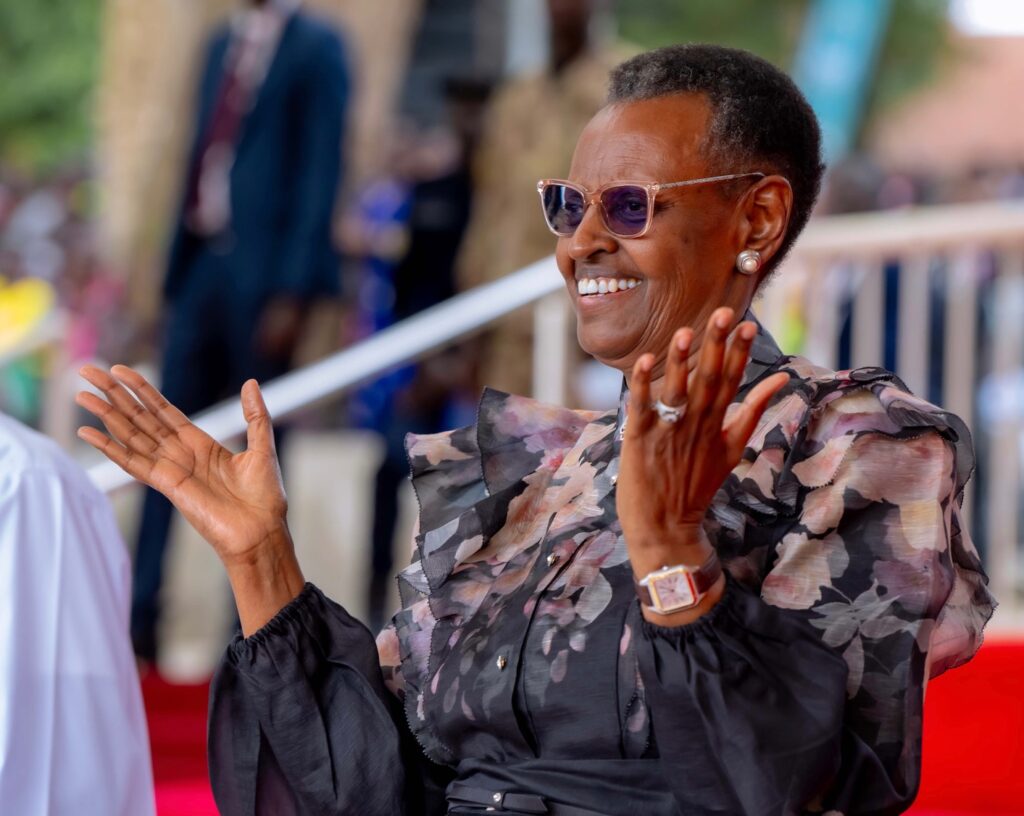
“This is what all and sundry should know about Africans of this area: they can sacrifice for the legitimate causes they believe in,” he noted.
He also linked this historical sacrifice to modern struggles, referencing the 1981 resistance in Kikandwa against Bazilio Okello.
“Luttamaguzi Edidian, their leader, told them: ‘Temulajana’ Do not lament.”
President Museveni reiterated the importance of religious freedom and the secular character of the Ugandan state.
“We believe in the freedom of worship and not coercing people to believe in this or that, as long as they do not break the law. We also believe in separating denominational issues from government matters, which are for all citizens and even non-citizens in Uganda,” he added.
He invoked scripture to support this principle.
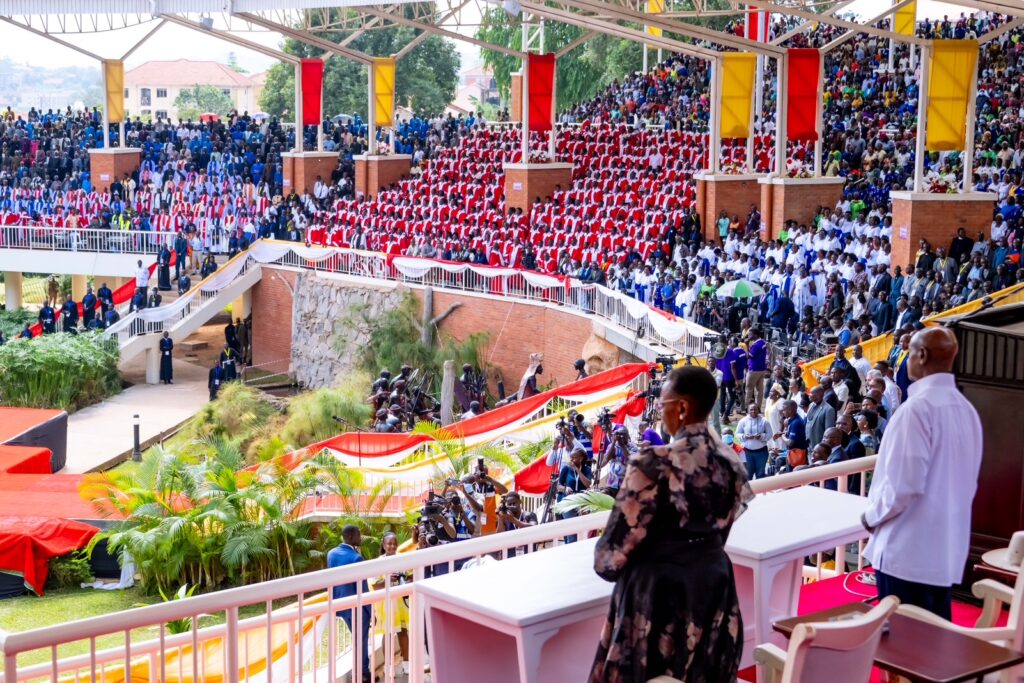
“Jesus helped us in Mark 12:17: ‘Give unto God what is God’s and unto Caesar what is Caesar’s,” he said.
The President also reminded Ugandans of the National Resistance Movement’s (NRM) historical missions: creating prosperity, ensuring continental security, and leveraging African unity for mutual growth.
“If all adults become wealth-creators, who will buy their products and services? Tribal and sectarian markets are not enough. The national market of Uganda is better, hence our first ideological principle: Patriotism- love Uganda, because you need it for your prosperity,” he said.
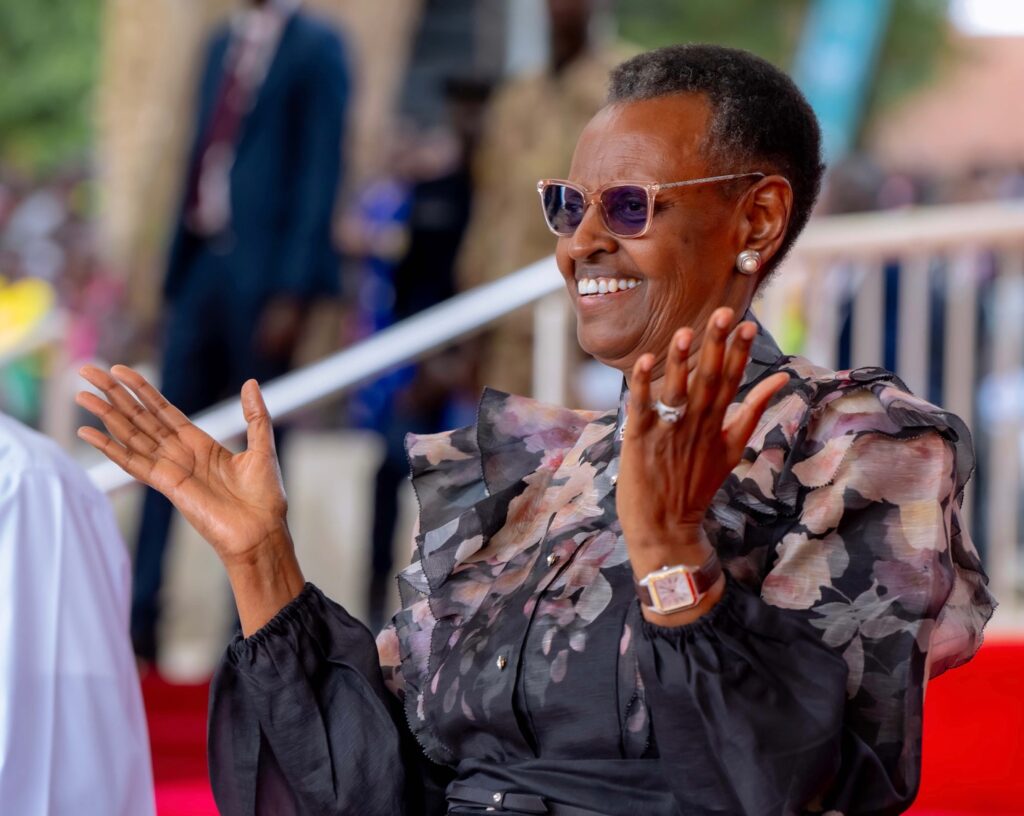
“But even Uganda’s market is not big enough. Have you heard of East Africa? Have you heard of Africa? They can buy your surplus. That’s why we embrace Pan-Africanism- love Africa.”
He added Social-Economic Transformation and Democracy as core guiding principles.
President Museveni urged believers to never mix politics with denominational loyalty.
“Politics is about our welfare on Earth. Denominations and religion are about spirituality on Earth and life after, which religious leaders can explain better,” he said.
Drawing on his past experience as President of the Scripture Union (1965–1966), he quoted from Luke 10:30-35, the Parable of the Good Samaritan, to highlight religious tolerance and service.
“The Samaritan helped the injured man while his fellow Jews, who were religious leaders, passed him by. Jesus praised the Samaritan. We shall know them by their fruits,” he said.
He quoted the Church of Uganda Prayer Book, page 207.
“Let your light so shine before men that they see your good deeds and praise your Father in heaven.”
Lessons from the Bush:
Recalling his days in the liberation struggle, President Museveni shared how religious diversity was harmonized through shared knowledge and practical survival.
“In the bush, I lived with Catholics, Anglicans, Muslims, and traditional believers. We united them around science, a bullet kills. Prayers help, but a reed won’t stop a bullet,” he said.
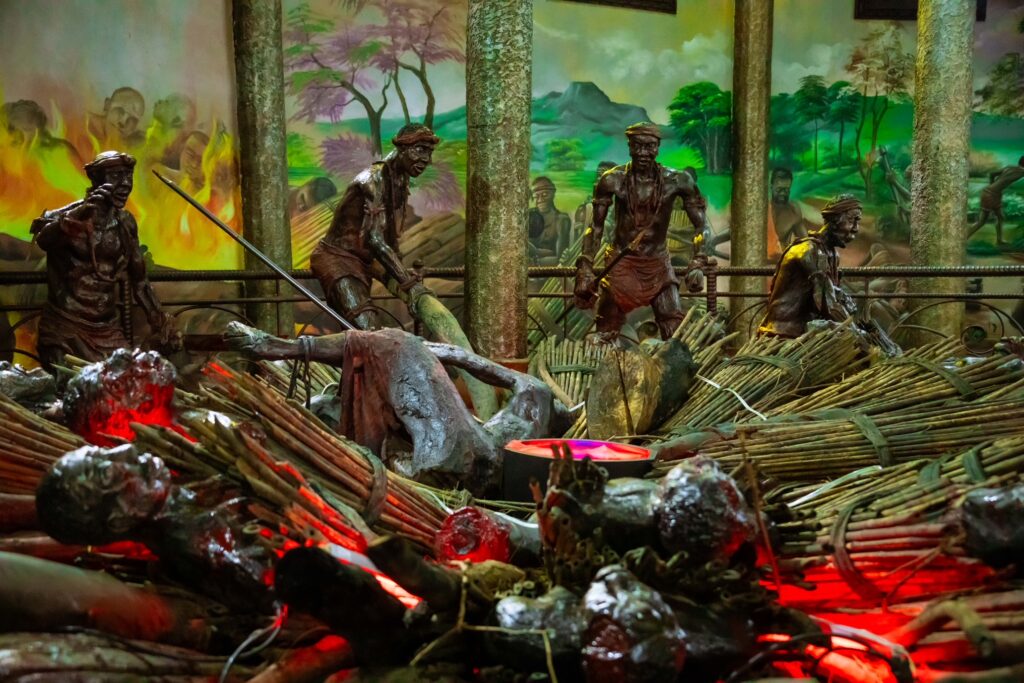
The Minister of Health, Dr. Jane Ruth Aceng, who also chairs the National Organizing Committee, delivered a heartfelt message on behalf of the Northern Cluster.
“On this sacred ground, faith has truly surpassed fear. The Northern Cluster is deeply honoured to have led this year’s commemoration. It is not only a privilege, but a testimony to unity across religions,” she said.
She celebrated the commitment of pilgrims from diverse backgrounds who walked long distances in faith.
“Their feet were weary, but their spirits were lifted. Their presence affirms shared faith, unity, and the strength of commitment.”
Dr. Aceng praised President Museveni’s focus on education, health, peace, and economic empowerment.
“Your Excellency, your dedication to peacebuilding has been felt throughout the nation. Let this Martyrs Day renew our commitment to build a nation anchored on love, justice, and unity.”
She called for the completion of pending infrastructure at the Anglican Shrine, underscoring the importance of sustaining such spiritual landmarks.
Hon. Martin Mugarra, Minister of State for Tourism, Wildlife and Antiquities, hailed the growth of Uganda as a faith tourism hub.
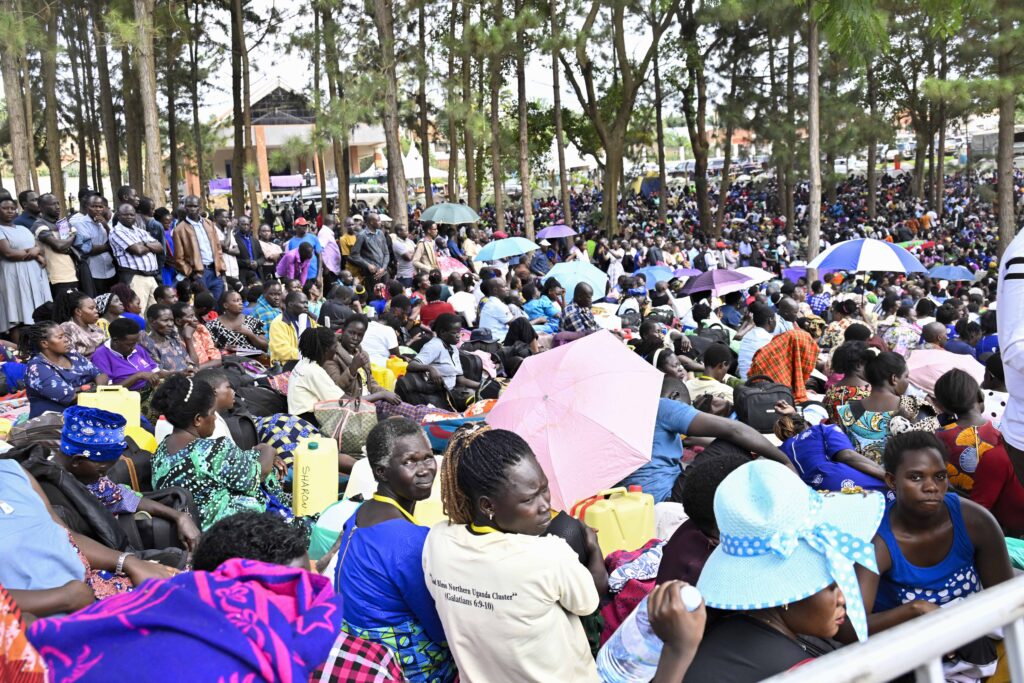
“I thank the clergy for welcoming His Excellency and Maama Janet. I commend the organizing committees for making this a success,” he said.
The Minister highlighted that the celebration now draws international pilgrims from Nigeria, Rwanda, Kenya, South Sudan, South Africa, Burundi, Europe, Asia and many others.
“They spend weeks in Uganda, contribute to our economy, and return spiritually renewed.”he said